Addressing Health Concerns In The Pool: Allergies and Hygiene
A shimmering, inviting pool is the dream of every homeowner. But the secret to enjoying your private oasis lies in more than just its appearance. Addressing health concerns such as allergies and hygiene plays a crucial role in ensuring a safe and enjoyable swimming environment for everyone. This blog post dives into the importance of maintaining your pool's hygiene, understanding potential allergies, and adopting best practices to keep your pool not just beautiful, but also safe.
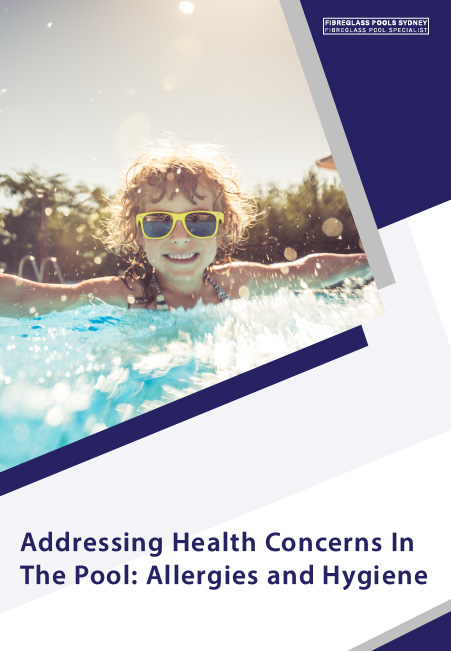
Why Pool Hygiene Matters
Whether you’re maintaining a private backyard pool or overseeing a public facility, the cleanliness of your pool is paramount. Poor hygiene can lead to a host of problems, from minor skin irritations to serious waterborne diseases. Keeping your pool clean and free of contaminants helps protect swimmers’ health and enhances their overall experience.
Clean water not only looks good, but it also feels better on the skin. Imagine the joy of swimming in crystal-clear water without worrying about the unseen dangers lurking beneath the surface. Regular maintenance and adherence to hygiene protocols are your best allies in achieving this ideal.
Failing to maintain proper hygiene can quickly turn a refreshing swim into a breeding ground for bacteria and algae. This can lead to costly repairs and treatments down the line, not to mention the potential health risks for swimmers.
Understanding Pool-Related Allergies
Allergies are a common issue for many pool users, ranging from mild skin irritations to more severe respiratory problems. Knowing the types of allergies that can arise from pool use is the first step in addressing them effectively.
Skin Allergies
Many swimmers experience skin allergies due to prolonged exposure to pool chemicals. Chlorine, although essential for disinfecting the pool, can cause dry skin, rashes, and itching. People with sensitive skin might find these symptoms more pronounced, especially after long swimming sessions.
Respiratory Allergies
The fumes from pool chemicals, particularly chlorine, can irritate the respiratory system. Swimmers might experience coughing, wheezing, or even asthma attacks if they’re sensitive to these chemicals. Proper ventilation and chemical management are crucial in reducing these risks.
Eye Allergies
Red, itchy eyes are a common complaint among regular swimmers. Chlorine can irritate the eyes, especially if the pool’s pH balance is off. Wearing goggles can help protect the eyes, but maintaining the right chemical balance is essential to prevent eye discomfort altogether.
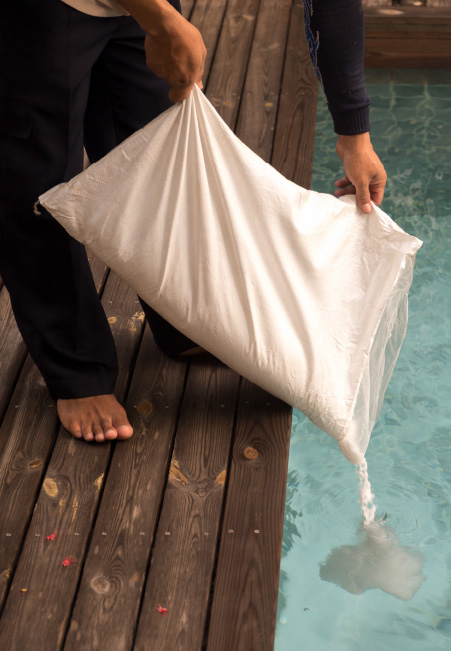
Best Practices for Maintaining Pool Hygiene
Maintaining pool hygiene involves a combination of regular cleaning, proper chemical management, and routine inspections. Here are some tips to help you keep your pool in top condition.
Regular Cleaning
Regular cleaning is the backbone of pool maintenance. Skimming the surface daily to remove debris, brushing the walls and floor, and vacuuming the pool at least once a week can significantly reduce the accumulation of dirt and algae.
Proper Filtration
Your pool’s filtration system plays a vital role in keeping the water clean. Ensure your filter is working efficiently by backwashing it regularly and inspecting it for any signs of wear and tear. A clean filter can make a world of difference in maintaining crystal-clear water.
Chlorine and pH Levels
Maintaining the correct chlorine levels and pH balance is crucial in preventing the growth of harmful bacteria and algae. Test the water regularly and adjust the chemical levels as needed. Aim for a chlorine level between 1 and 3 ppm and a pH level between 7.2 and 7.8 for optimal results.
Managing Pool Hygiene
Managing pool hygiene goes beyond regular cleaning; it requires a comprehensive approach to ensure a safe swimming environment. Here are some additional tips to help you manage your pool effectively.
Routine Maintenance
Establishing a routine maintenance schedule can help you stay on top of pool hygiene. Regularly inspect the pool for any signs of wear or damage, and address issues promptly to prevent them from escalating.
Professional Cleaning Services
Hiring professional cleaning services can take the burden off your shoulders and ensure your pool is maintained to the highest standards. Professionals have the expertise and equipment to handle deep cleaning and complex issues that might be beyond a typical homeowner’s capabilities.
Educate Pool Users
Educating pool users about proper hygiene practices can go a long way in maintaining a clean pool. Encourage swimmers to shower before entering the pool, avoid swimming when sick, and use the restroom facilities as needed.
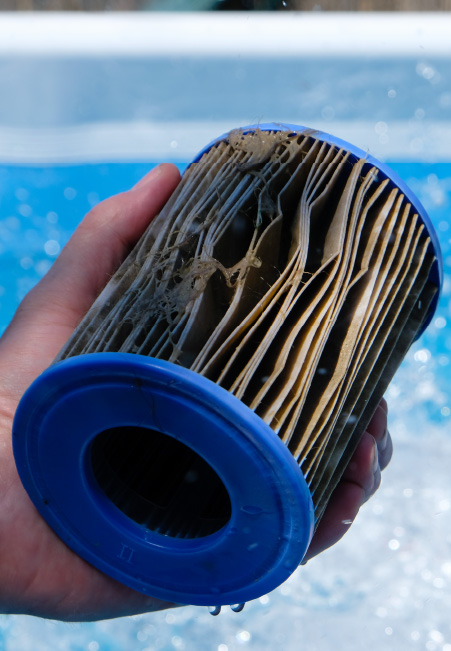
Preventing Waterborne Diseases
Waterborne diseases are a serious concern for pool owners. Proper hygiene practices can significantly reduce the risk of these diseases, ensuring a safe swimming environment for all users.
Regular Water Testing
Regularly testing the pool water for contaminants can help you identify and address potential issues before they become a problem. Use a reliable testing kit or hire a professional to conduct thorough water analysis.
Shock Treatment
Shocking the pool, or superchlorination, involves adding a large dose of chlorine to the water to kill off any lingering bacteria or algae. This should be done periodically, especially after heavy pool use or if the water appears cloudy.
Proper Drainage
Ensuring proper drainage around the pool area can prevent water from stagnating and becoming a breeding ground for bacteria and insects. Keep the pool deck clean and free of standing water to maintain a hygienic environment.
Conclusion
Maintaining pool hygiene and addressing health concerns such as allergies are essential responsibilities for pool owners. By implementing regular cleaning routines, managing chemical levels, and educating pool users, you can ensure a safe and enjoyable swimming experience for everyone.
Remember, a clean pool is not just about aesthetics; it’s about creating a healthy environment where you and your loved ones can relax and have fun. Prioritise pool hygiene today, and reap the benefits of a sparkling clean, safe swimming oasis.
For personalised advice and expert tips on maintaining your pool, consider booking a consultation with one of our experienced pool maintenance professionals. They can help you tailor a maintenance plan that suits your specific needs and ensures your pool remains a source of joy and relaxation for years to come.
Addressing Health Concerns In The Pool: Allergies and Hygiene
A shimmering, inviting pool is the dream of every homeowner. But the secret to enjoying your private oasis lies in more than just its appearance. Addressing health concerns such as allergies and hygiene plays a crucial role in ensuring a safe and enjoyable swimming environment for everyone. This blog post dives into the importance of maintaining your pool's hygiene, understanding potential allergies, and adopting best practices to keep your pool not just beautiful, but also safe.
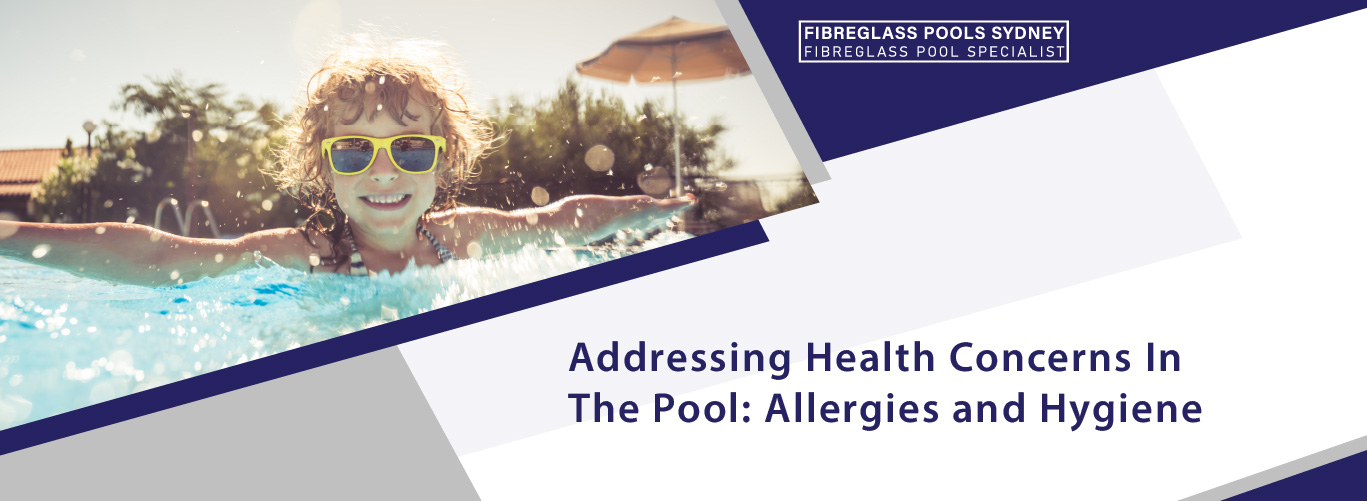
Why Pool Hygiene Matters
Whether you’re maintaining a private backyard pool or overseeing a public facility, the cleanliness of your pool is paramount. Poor hygiene can lead to a host of problems, from minor skin irritations to serious waterborne diseases. Keeping your pool clean and free of contaminants helps protect swimmers’ health and enhances their overall experience.
Clean water not only looks good, but it also feels better on the skin. Imagine the joy of swimming in crystal-clear water without worrying about the unseen dangers lurking beneath the surface. Regular maintenance and adherence to hygiene protocols are your best allies in achieving this ideal.
Failing to maintain proper hygiene can quickly turn a refreshing swim into a breeding ground for bacteria and algae. This can lead to costly repairs and treatments down the line, not to mention the potential health risks for swimmers.
Understanding Pool-Related Allergies
Allergies are a common issue for many pool users, ranging from mild skin irritations to more severe respiratory problems. Knowing the types of allergies that can arise from pool use is the first step in addressing them effectively.
Skin Allergies
Many swimmers experience skin allergies due to prolonged exposure to pool chemicals. Chlorine, although essential for disinfecting the pool, can cause dry skin, rashes, and itching. People with sensitive skin might find these symptoms more pronounced, especially after long swimming sessions.
Respiratory Allergies
The fumes from pool chemicals, particularly chlorine, can irritate the respiratory system. Swimmers might experience coughing, wheezing, or even asthma attacks if they’re sensitive to these chemicals. Proper ventilation and chemical management are crucial in reducing these risks.
Eye Allergies
Red, itchy eyes are a common complaint among regular swimmers. Chlorine can irritate the eyes, especially if the pool’s pH balance is off. Wearing goggles can help protect the eyes, but maintaining the right chemical balance is essential to prevent eye discomfort altogether.
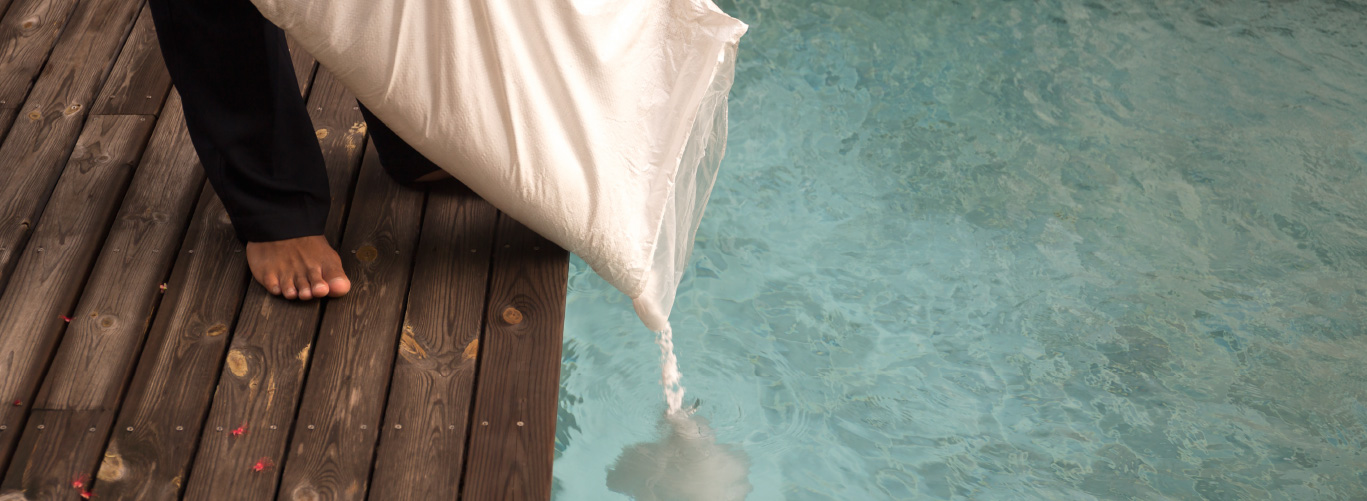
Best Practices for Maintaining Pool Hygiene
Maintaining pool hygiene involves a combination of regular cleaning, proper chemical management, and routine inspections. Here are some tips to help you keep your pool in top condition.
Regular Cleaning
Regular cleaning is the backbone of pool maintenance. Skimming the surface daily to remove debris, brushing the walls and floor, and vacuuming the pool at least once a week can significantly reduce the accumulation of dirt and algae.
Proper Filtration
Your pool’s filtration system plays a vital role in keeping the water clean. Ensure your filter is working efficiently by backwashing it regularly and inspecting it for any signs of wear and tear. A clean filter can make a world of difference in maintaining crystal-clear water.
Chlorine and pH Levels
Maintaining the correct chlorine levels and pH balance is crucial in preventing the growth of harmful bacteria and algae. Test the water regularly and adjust the chemical levels as needed. Aim for a chlorine level between 1 and 3 ppm and a pH level between 7.2 and 7.8 for optimal results.
Managing Pool Hygiene
Managing pool hygiene goes beyond regular cleaning; it requires a comprehensive approach to ensure a safe swimming environment. Here are some additional tips to help you manage your pool effectively.
Routine Maintenance
Establishing a routine maintenance schedule can help you stay on top of pool hygiene. Regularly inspect the pool for any signs of wear or damage, and address issues promptly to prevent them from escalating.
Professional Cleaning Services
Hiring professional cleaning services can take the burden off your shoulders and ensure your pool is maintained to the highest standards. Professionals have the expertise and equipment to handle deep cleaning and complex issues that might be beyond a typical homeowner’s capabilities.
Educate Pool Users
Educating pool users about proper hygiene practices can go a long way in maintaining a clean pool. Encourage swimmers to shower before entering the pool, avoid swimming when sick, and use the restroom facilities as needed.
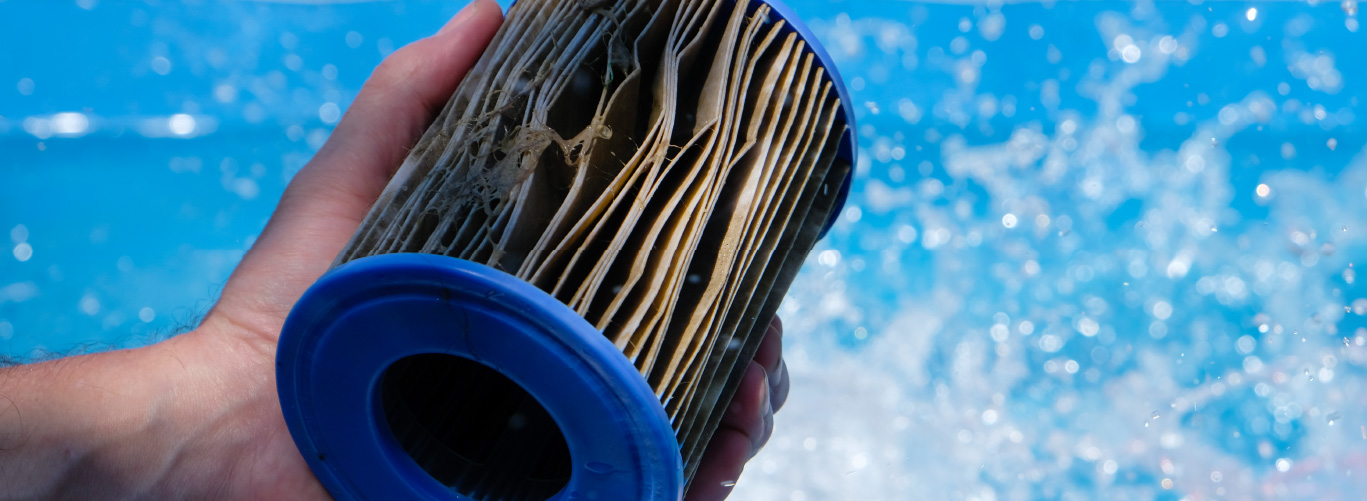
Preventing Waterborne Diseases
Waterborne diseases are a serious concern for pool owners. Proper hygiene practices can significantly reduce the risk of these diseases, ensuring a safe swimming environment for all users.
Regular Water Testing
Regularly testing the pool water for contaminants can help you identify and address potential issues before they become a problem. Use a reliable testing kit or hire a professional to conduct thorough water analysis.
Shock Treatment
Shocking the pool, or superchlorination, involves adding a large dose of chlorine to the water to kill off any lingering bacteria or algae. This should be done periodically, especially after heavy pool use or if the water appears cloudy.
Proper Drainage
Ensuring proper drainage around the pool area can prevent water from stagnating and becoming a breeding ground for bacteria and insects. Keep the pool deck clean and free of standing water to maintain a hygienic environment.
Conclusion
Maintaining pool hygiene and addressing health concerns such as allergies are essential responsibilities for pool owners. By implementing regular cleaning routines, managing chemical levels, and educating pool users, you can ensure a safe and enjoyable swimming experience for everyone.
Remember, a clean pool is not just about aesthetics; it’s about creating a healthy environment where you and your loved ones can relax and have fun. Prioritise pool hygiene today, and reap the benefits of a sparkling clean, safe swimming oasis.
For personalised advice and expert tips on maintaining your pool, consider booking a consultation with one of our experienced pool maintenance professionals. They can help you tailor a maintenance plan that suits your specific needs and ensures your pool remains a source of joy and relaxation for years to come.


